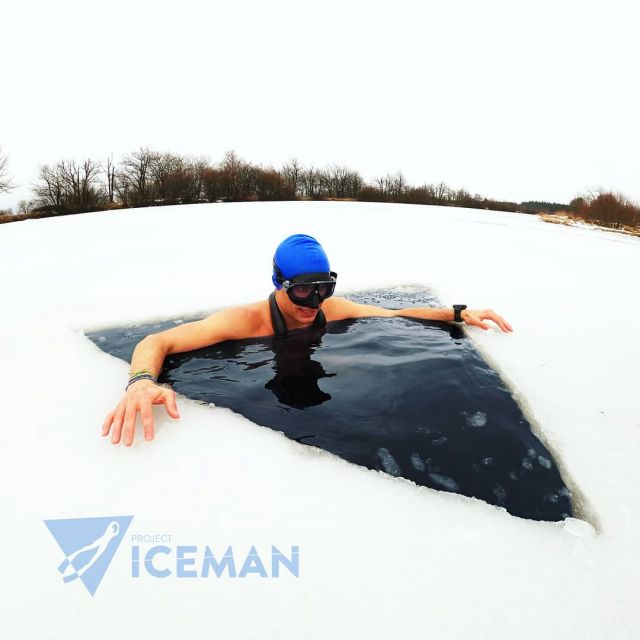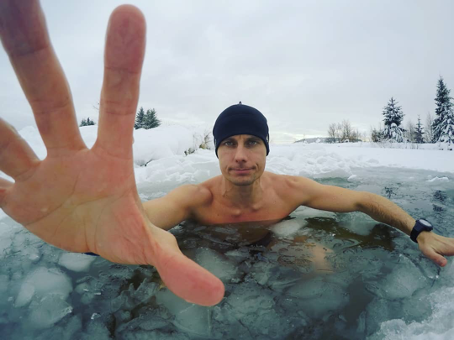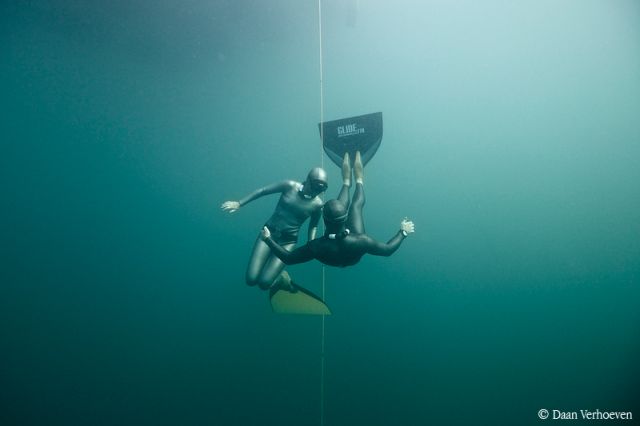Interview with a World Champion Herbert Nitsch
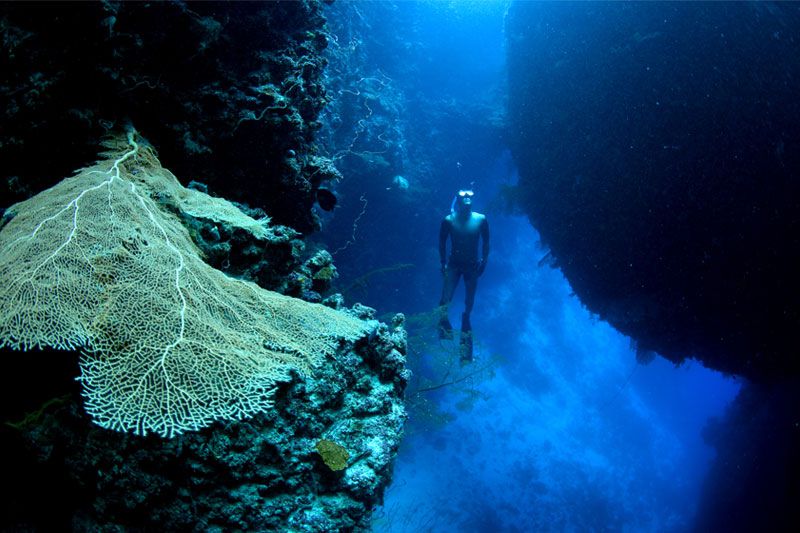
On June 6th, 2012, Herbert surpassed his own record with a No Limit dive to 253.2 meters (830.8 feet). During the dive, well after having reached the planned depth, Herbert fell asleep due to nitrogen narcosis. Before reaching the surface, the sled automatically stopped at 10m/33ft. Because he did not react, safety divers took Herbert off the sled and subsequently woke him back up while still underwater. Because he missed the planned one-minute underwater decompression stop, Herbert suffered from severe decompression sickness (DCS-type 2) resulting in multiple brain-strokes. With a prognosis of remaining a "wheelchair-bound, care-dependent patient", he dismissed himself from long-term facilitated care, and took his healing into his own hands. Two years later, against all odds, Herbert is training and deep-freediving again.
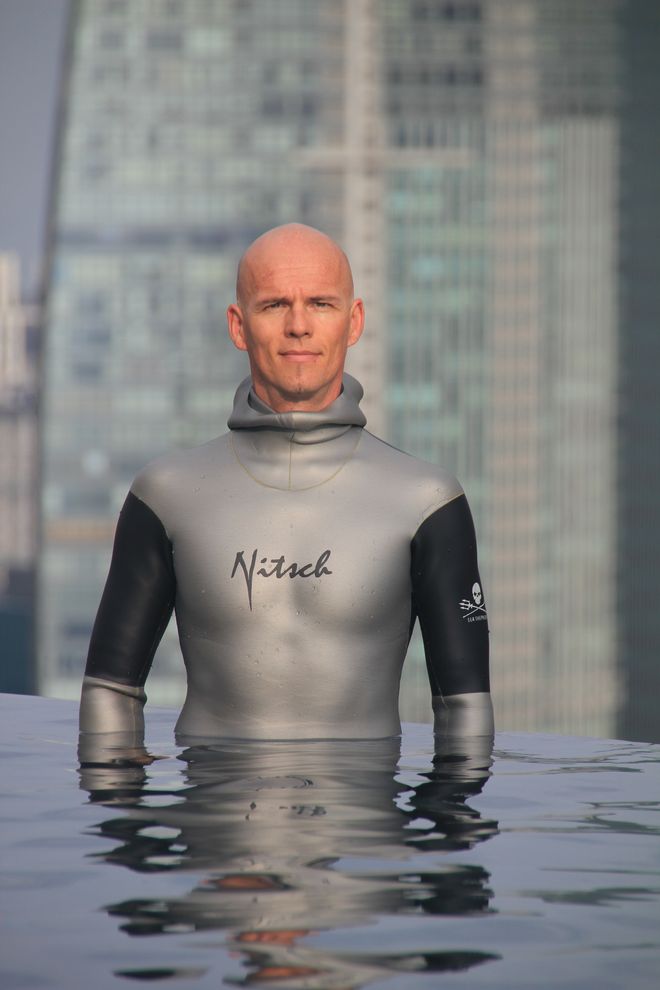
Photo: © herbertnitsch.com
A: You were a pilot for Tyrolean Airways for 15 years, how did you get into freediving?
H: In 1999 an airline lost my luggage on the way to a scuba-diving safari on a live-aboard in Egypt. This forced me to snorkel with my underwater camera. Unaware that I was freedive-training (I’d never heard of the sport), I went deeper and longer every day. One of my friends on the boat questioned how deep I could “snorkel”, and put a depth gauge around my wrist. I dove to 32 meters, just 2 meters short of the Austrian freediving record at that time. This friend told me to get a pair of decent fins and go for the record.
Because of my work as an airline captain, and because I lived in a land-locked country (Austria) I had very little time to freedive and train in the ocean. Especially compared to the freediving elite that lived at that time in Nice, South of France, two steps from the Mediterranean. But I did have time to think about training and freediving in the most efficient way. So I developed my own freedive training consisting mainly of “dry training”. My freediving techniques itself are also different to the norm. To date, my methods are still considered controversial in the freediving scene. However, 33 world records later, they have proven to be very effective.
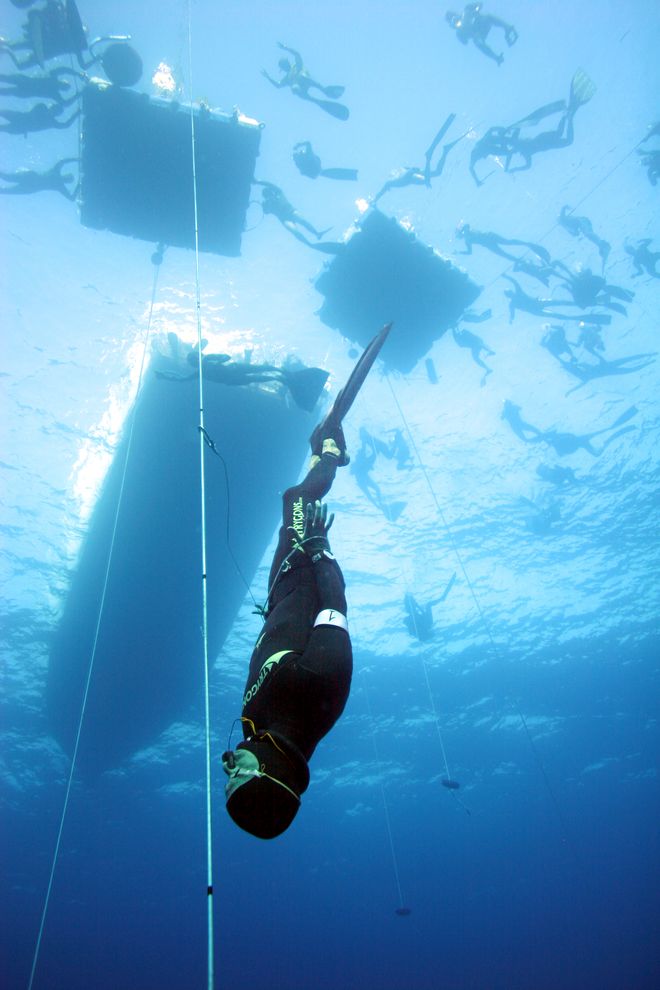
Photo: © herbertnitsch.com
A: What is the most rewarded moment for you as a freediver?
H: The most rewarding moments are when I am freediving in the big blue amidst marine life and coral reefs, or in caves and shipwrecks.
"Freediving is a part of my life. I consider it as important as eating, drinking and breathing"
A: In 2012, you almost lost your life while pursuing a new world record. Had there ever been a moment in your freediving career before that incident that you wanted to quit?
H: After setting my last three world records in competition in 2010, I stopped competing because I got bored with it. Thereafter I focused solely on the No Limit discipline, which is held outside competitions. For the two years thereafter I designed and built an advanced No Limit-sled for the 2012 world record of 253.2m/830.8ft, and continued freediving for fun.
I incurred severe decompression sickness after my “deepest dive” which left me bound to a wheelchair for a long time, but the urge to freedive never left me. On the contrary, it motivated me to get out of that wheelchair.
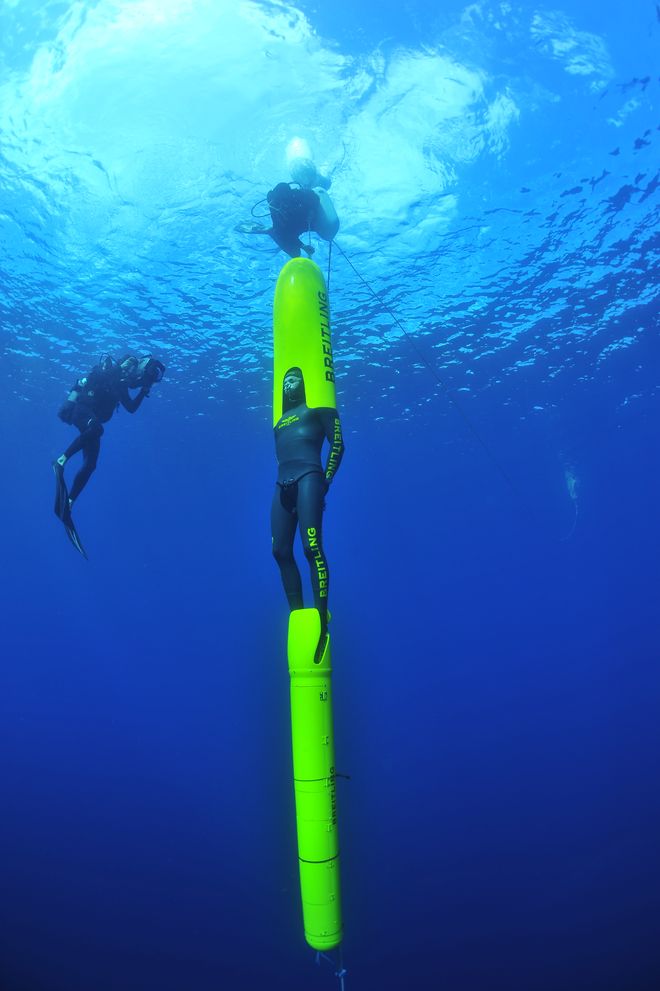
Photo: © herbertnitsch.com
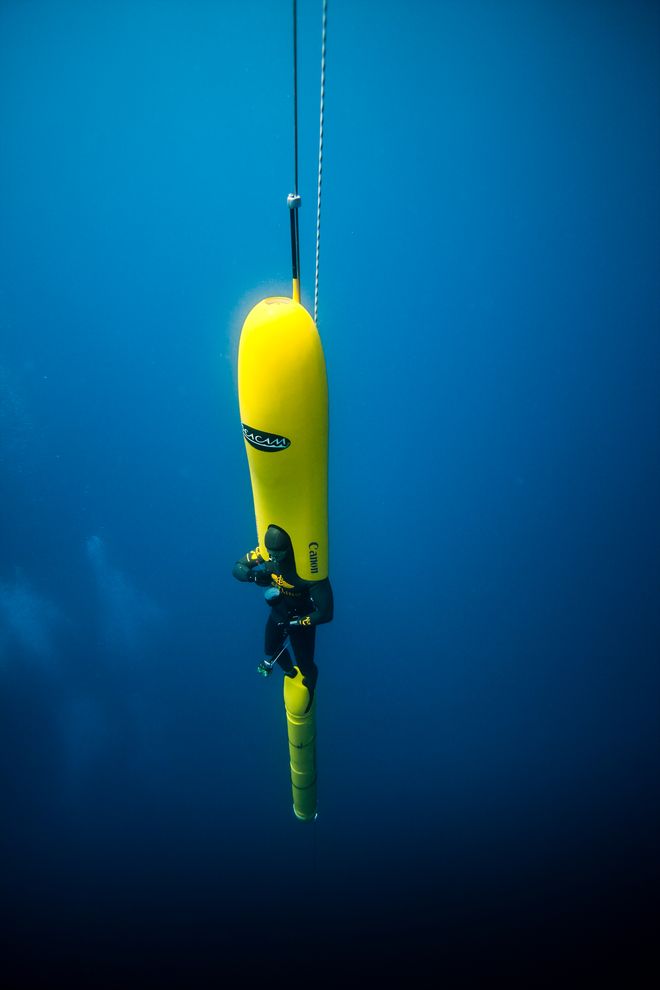
Photo: © Francine Kreiss
A: Two years later after the fateful dive you are training and deep-freediving again. What motivates you now?
H: My motivation before and after 6 June 2012 has not changed. Ninety percent of my freediving had always been for fun, and still is. The championships and records were a small part of the whole freediving experience only, because I was intrigued to see how far I could push my body and mind.
“Each time I think I’ve reached a limit...there is a door...it opens...and the limit is gone”
A: You became a Sea Shepherd member and joined the likes of Enzo Maiorca or Kelly Slater. What are your goals within the organization?
H: As part of Sea Shepherd’s Advisory Board we all contribute in various ways. Sea Shepherd is a non-profit marine conservation organization that uses direct action tactics to protect marine life with the help of several of their ships and hundreds of volunteers from all over the world. My goal is continually spreading the word about the important work Sea Shepherd does around the planet for our oceans. I always address this in any lecture I give, no matter the audience.
At times I participate in projects, such as “Operation Syracusa”, organized by Enzo and Patrizia Maiorca in Sicily. Or making short films for Sea Shepherd, such as one with freedivers addressing the continued killing of dolphins in Taji, Japan, and another one to protest the use of dolphins for circus-shows in marine parks.
A: Speaking of lectures, where can we hear you next?
H: I’ll be at the SonevaFushi Resort in the Maldives from 13-26 May this year lecturing and teaching. Later in the year I lecture during various corporate events.
A: You can hold your breath for a whooping nine minutes. Now that gives you freedom of a fish. Tell me, what goes on in your head while freediving, exploring our beautiful oceans?
H: When freediving during competitions or for setting world records, the focus is totally inward, and I concentrate at the task of the moment.
When freediving for fun, the focus is totally outward, and the feeling is that of pure joy. I get a kick out of playfully interacting with big marine life (sharks, dolphins, turtles, schools of fish, etc.).
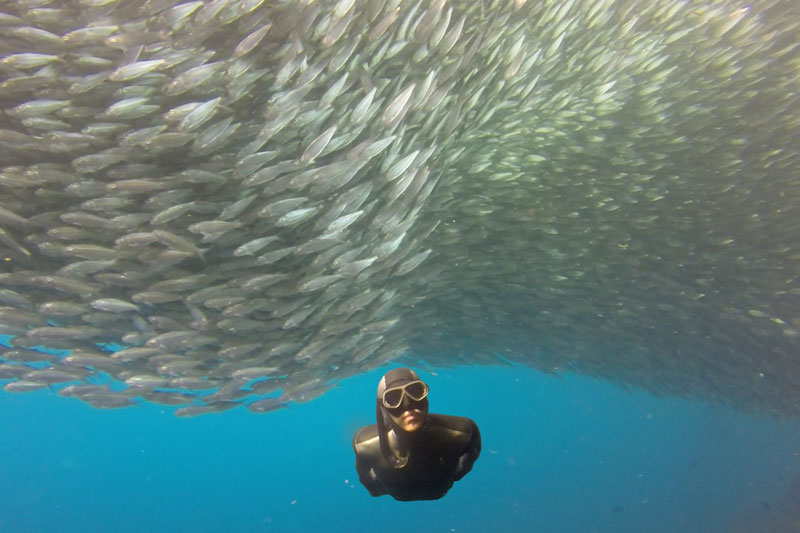
Photo: © herbertnitsch.com
"I feel like a kid in a candy store when I’m floating through cave systems or exploring ship wrecks"
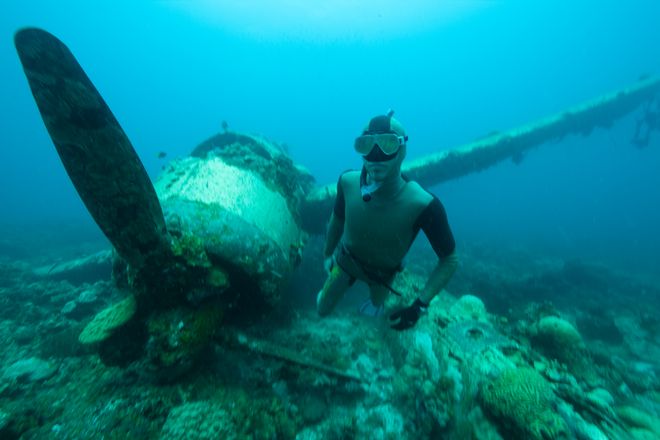
Photo: © herbertnitsch.com
A: What is the decisive moment prior your underwater adventures?
H: In order to have a good competition-dive or fun freedive, it is most important to be super-relaxed, as if in a near-sleep state. Any stress works counterproductive for freediving. Therefore you have to avoid an adrenaline rush, high blood pressure and a racing heart. So the moment you feel totally relaxed, is the moment you take a deep breath and go..
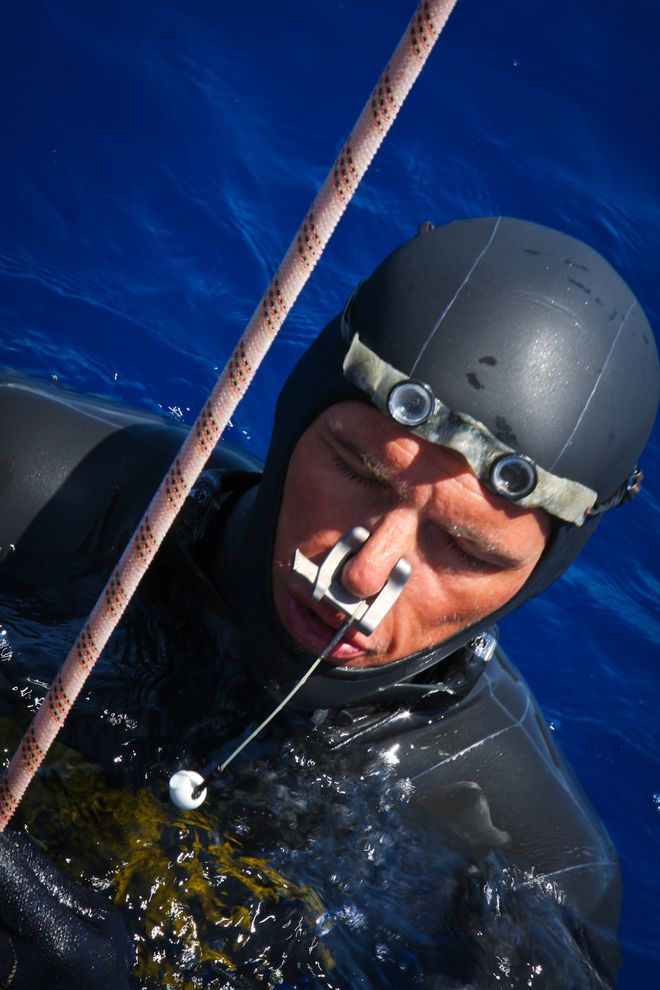
Photo: © Francine Kreiss
A: I read that you'd like to explore the depths of the ocean. Is that how we will see you in the future, preparing for a submarine mission?
H: Indeed, the ocean keeps calling. At the moment I’m designing an ocean-going eco-boat to live on for several months a year, and I’m also putting ideas together for a submarine. Meanwhile I keep exploring the deep blue on a single breath of air.
-END-
Source: http://www.Adrex.com






